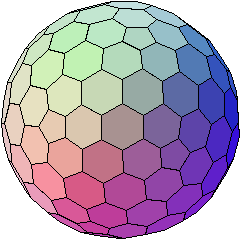|
|
Online Poems |
|
Instructor's notes: The title "90 North" refers to the North Pole, specifically its geodetic latitude. (The South Pole is "90 South.") The speaker of the poem remembers going to bed in his childhood home. Climbing up the bed's white sheets triggers associations with arctic exploration—a great but often tragic scenario for adventure at the turn of the 19th and twentieth centuries.
Discussion questions: 1. How does the poem's action or desire depend on the romance narrative if quest or journey?
2. How may the romance narrative be tragic (or comic) as well as romantic?
3. What possible elements of gothic?
4. Above all, identify the sublime as a tragic-romantic ethic.
![]()
90 North
by Randall Jarrell
(1914-65)
At home, in my flannel gown, like
a bear to its floe,
I
clambered to bed; up the globe's impossible sides
I sailed all night—till at last, with my black beard,
My furs and my dogs, I stood at the northern pole.
There in the childish night my
companions lay frozen,
5
The stiff fur knocked
at my starveling throat,
And I gave my great sigh: the flakes came huddling,
Were they really my end? In the darkness I turned to
my rest.
—Here, the flag snaps in the glare and silence
Of the unbroken ice. I stand here,
10
The dogs bark, my
beard is black, and I stare
At the North Pole . . .
And now what? Why, go back.
Turn as I please, my step is
to the south.
The
world—my world spins on this final point
15
Of cold and
wretchedness: all lines, all winds
End in this whirlpool I at last discover.
And it is meaningless. In the
child's bed
After the
night's voyage, in that warm world
Where people work and suffer for the end
20
That crowns the
pain—in that Cloud-Cuckoo-Land*
[*never-never-land; imaginary paradise]
I reached my North and it had
meaning.
Here at the
actual pole of my existence,
Where all that I have done is meaningless,
Where I die or live by accident alone—
25
Where, living or dying, I am still alone;
Here where North, the night, the berg of death
Crowd me out of the ignorant darkness,
I see at last that all the knowledge
I wrung from the darkness—that
the darkness flung me— 30
Is worthless as ignorance: nothing comes from nothing,
The darkness from the darkness. Pain comes from the
darkness
And we call it
wisdom. It is pain.

